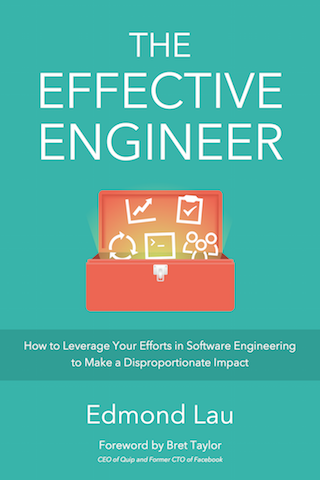How to Create Time and Space for What You Want to Do

I laid on the couch. My body alternated uncomfortably through waves of heat and sweat. My lower back ached constantly. I swallowed my sixth Advil for the day, hoping that my pounding headache would stop.
I had caught some bug that was going around. With little energy to do anything, I ended up watching the entire season of Westworld — all 10 hours of it — in a single day. By the way, I loved the show — it felt like a role-playing game that mixed Jurassic Park and humanoid robots, all infused with an awesome storyline, great character development, and unpredictable plot twists.
Binge-watching a TV show isn’t something I usually do. Afterwards, I felt a little guilty.
Growing up in an immigrant family, with parents who have always worked six-day weeks, a hard work ethic has always been part of my identity. I often feel guilty whenever I’m wasting time or not being productive. I’ll ask myself, “Is this really the best use of the opportunity I have?”
It takes moments like me getting sick — and realizing that I was in no shape to do much else — to give myself permission to do activities that feel irresponsible. And that made me wonder: how often do we find ourselves so focused on doing the things we feel responsible for, that we have no time for the things that we actually want to do?
Balancing What We Feel Responsible For and What We Want
Many of us feel the weight of responsibility — whether it’s to our work, to our family, or to other people in our lives.
Responsibility has a way of filling our schedules. Standing meetings, new meeting requests, email backlogs, task lists, interruptions to help out, firefighting, urgent customer demands — they can all easily fill our available time.
And, as we grow in our roles, we take on more responsibilities. The number of areas where we’d be the “best person for the job” keeps growing over time. It becomes harder to say no to all the incoming requests. We’ll sometimes feel that spending time on the things that we should be doing leaves little space in our schedules for the things that we want to do.
The other day, I had a conversation with a senior engineering manager at Google. She felt like her days were filled with all the things that she had to do and not the things that she wanted to do.
She’s not alone. I struggle with this all the time.
I should be reviewing code from my team. I want to invest time in building stronger relationships with other engineering leaders, in service of supporting engineers more broadly.
I should be focused on growing the team and executing on the product. I want to stretch my leadership by taking time to prepare for and give an invited talk in front of a thousand people.
I should be contributing directly to our product, given our small team. I want to spend more time raising the bar for technical leadership, and doing all the coaching, teaching, and mentoring necessary to make that happen.
Your struggles will differ, but we’ll each have our own lists of shoulds and wants — the things we do out of a sense of responsibility, and the things that we do because they make us happy and excited.
There’s a powerful tension between the two.
When we say yes to doing the things we feel responsible for, we implicitly say no to other activities that we want to do or that make us happy or that bring us closer to our dreams. It’s up to us to not just default to saying yes, but to make a conscious decision – to give ourselves permission to create time and space in our schedules for things we want to do.
Creating Time and Space for Ourselves
What would our days look like if we gave ourselves permission to do what we actually wanted? We’d certainly bring new energy and excitement to what we did. What new possibilities would open up as a result?
One practice that I’ll do to open up those new possibilities is to write down a list of the activities that I want to do more of or start doing.

One of my recent lists.
Why make a list? Actually enumerating the activities makes all the things you want to do concrete in your mind.
Whereas before you might have said no to an opportunity because of things you should be doing, you might remember that the thing is on your list and then actually go do it. You might even just block off time on my calendar to focus on it.
Armed with your wants list, you’ll also start to notice more when opportunities to do them arise. You’ll begin to approach situations from a new perspective. How might problems you’re facing be reframed as opportunities to do something you want to do?
Perhaps a project that you aren’t looking forward to becomes an opportunity to stretch your leadership — how might you lead and motivate your team given the circumstances?
Perhaps a problem that you’re not sure how to do on your own becomes an opportunity to partner with someone you’ve been wanting to work with.
Perhaps your sense of overwhelm becomes an opportunity to learn how to delegate more effectively.
The lists also make it clear why you should want to say no to certain things. You’re not saying no to be irresponsible — even if it might initially feel that way — but to create space for all the things you want to say yes to.
A wise manager once told me: we’ll always be balancing between doing the things we feel responsible for and the things that make us happy. Over-optimize in any particular direction, and we end up in a bad place. If we’re always focusing on doing things out of responsibility, we can end up feeling burnt out or resentful that we don’t have time to do the things that make us happy. And if we’re only thinking about our own happiness, we leave behind those who depend on us.
Make sure to carve out space and time for what you want to do — not just when you’re sick and unable to do much else.

“A comprehensive tour of our industry's collective wisdom written with clarity.”
— Jack Heart, Engineering Manager at Asana
“Edmond managed to distill his decade of engineering experience into crystal-clear best practices.”
— Daniel Peng, Senior Staff Engineer at Google

“A comprehensive tour of our industry's collective wisdom written with clarity.”
— Jack Heart, Engineering Manager at Asana
“Edmond managed to distill his decade of engineering experience into crystal-clear best practices.”
— Daniel Peng, Senior Staff Engineer at Google


















Leave a Comment